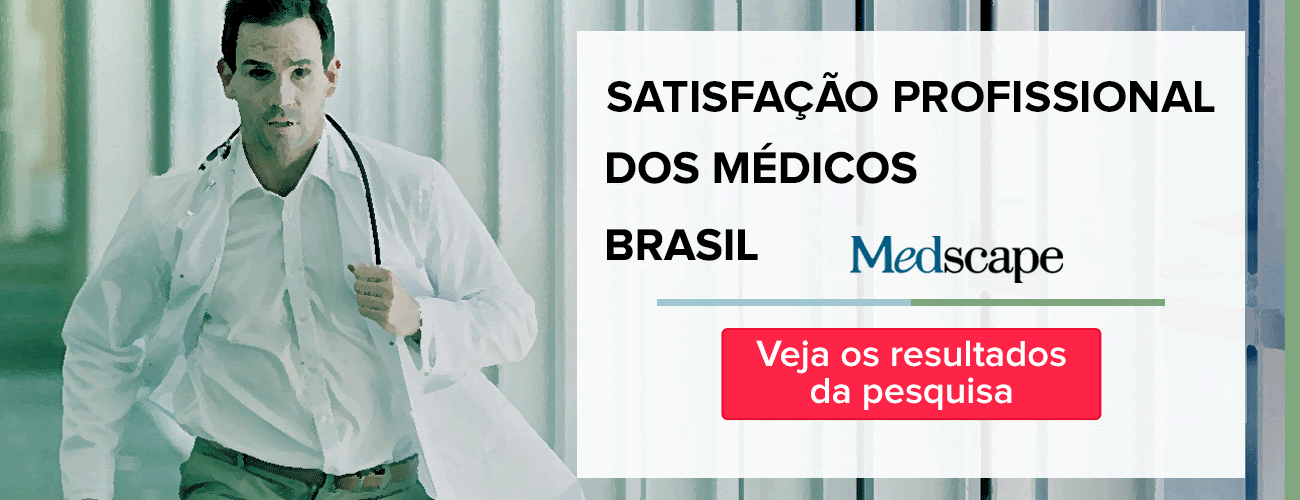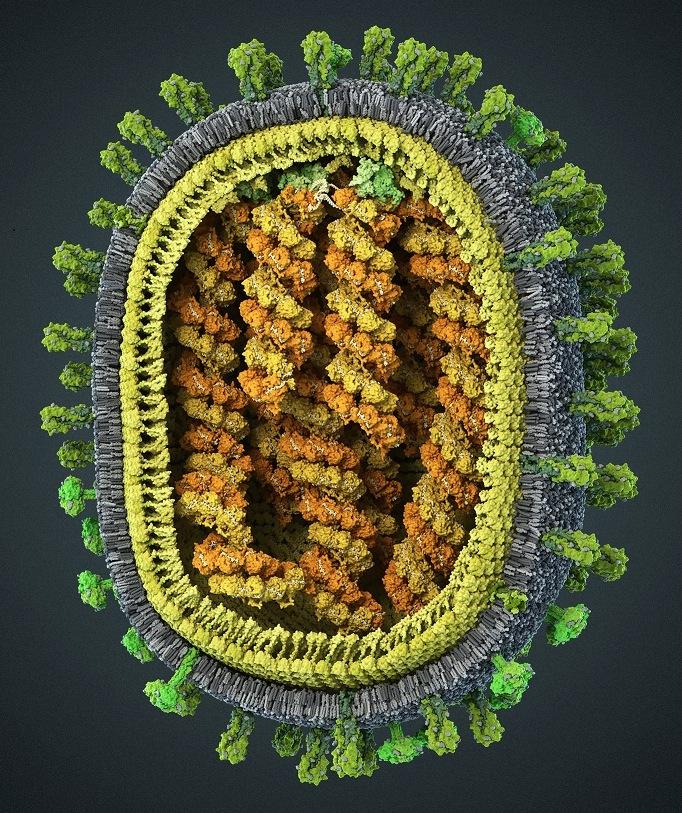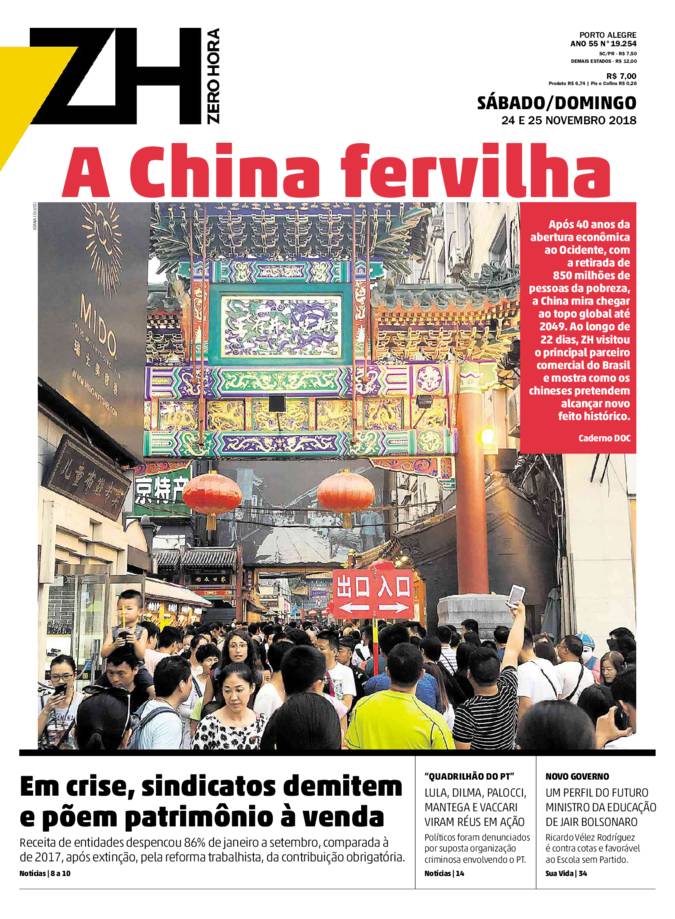- Capítulo 01 - O Atlas
Conhecer para Cuidar
Depois de inspirar a elaboração de obras similares em mais de 60 cidades no Brasil e no mundo, o Atlas Ambiental de Porto Alegre, lançado pela primeira vez em 1998, completa duas décadas de existência. Em 2018, o livro ganha uma versão digital na internet. Hospedada no Centro de Documentação e Acervo Digital da Pesquisa da UFRGS, a obra ficou mais acessível para quem quiser conhecer o ambiente natural da cidade, podendo nortear projetos de educação ambiental, guiar edificações e planificações urbanas, bem como embasar pesquisas científicas.Leia mais
Um laboratório para conectar práticas e saberes
Cap. 02Conexão digital
Cap. 03Reverberações científicas
Cap. 04Itinerário de leitura do Atlas
Cap. 05Elaborada em 1998 a partir de imagens de satélite da NASA, a projeção esférica da Terra mostra a capital gaúcha no centro do mundo. A representação estampa as primeiras páginas do Atlas Ambiental de Porto Alegre por uma razão: lembrar o leitor de que, para aprender sobre o ambiente em que vivemos, devemos começar pelo local em que estamos. Essa é umas das principais mensagens do livro produzido ao longo de quatro anos e nove meses, e que revela a evolução natural da paisagem, dentre muitos fatos científicos.A obra foi resultado de uma parceria firmada entre a Universidade Federal do Rio Grande do Sul (UFRGS) com vários institutos capitaneados pelo Instituto de Geociências, o Instituto Nacional de Pesquisas Espaciais (Inpe) e com a Prefeitura Municipal de Porto Alegre, especialmente por meio da Secretaria Municipal do Meio Ambiente.Ciência do lugarViabilizado por meio de patrocínios de empresas privadas e verbas da Prefeitura, o mapeamento do ambiente conta uma história natural de 800 milhões de anos, começando pelas rochas mais antigas e passando pela geomorfologia, hidrografia, fauna e flora, até a urbanização de Porto Alegre. O projeto teve início em 1994 e reúne descobertas científicas importantes em diversas áreas do conhecimento, feitas até final do século passado. "Só podemos amar de verdade aquilo que a gente conhece, e o Atlas Ambiental de Porto Alegre é a mais completa narrativa, é o mais completo conjunto de dados que uma cidade pode ter", afirma o coordenador-geral da obra, Rualdo Menegat,professor de geologia da UFRGS. - Visualize a versão digitalizada do Atlas
This Blog AMICOR is a communication instrument of a group of friends primarily interested in health promotion, with a focus on cardiovascular diseases prevention. To contact send a message to achutti@gmail.com http://achutti.blogspot.com
Friday, November 30, 2018
Wednesday, November 28, 2018
Hugging
| Consensual Hugs Seem to Reduce Stress People who had a conflict in a given day but also got hugged were not as affected by the negative interaction as were their unhugged counterparts.
When a friend comes to you after a stressful day, how do you comfort them? Do you let them rant? Do you pour them a glass of wine? Those could work. But a new study finds that a very effective technique is also simple and easy.
“Hugging.”
Michael Murphy is a psychology postdoc at Carnegie Mellon University in Pittsburgh. He wanted to know if people who received hugs regularly could handle stress and conflict better.
“Individuals who report perceiving the availability of a network of supportive individuals tend to show better adaptation when faced with stress.”
But just because you have a support network does not mean that you definitely feel that support.
“So some researchers have argued that many of the behaviors we use to support others who are stressed might actually be counterproductive because these behaviors might unintentionally communicate to others that they're not competent to manage stress.”/.../
|
Personalized Medicine
 |
| (Illustration by David Parkins) |
Statistical pitfalls of personalized medicine
“Causality is hard to study and difficult to prove,” says statistician Stephen Senn — and our failure to understand it is contributing to false hopes about the potential of personalized medicine. Senn calls out lazy language, arbitrary dichotomies, inappropriate yardsticks and ever-changing human physiology as some of the issues that stymie drugs in clinical trials.
Nature | 10 min read |
Human Genoma Editing
How the genome-edited-babies revelation will affect research
Conversation at the Second International Summit on Human Genome Editing in Hong Kong is focused on one thing: a shock announcement earlier this week by genomics researcher He Jiankui, claiming that he used CRISPR gene editing on human embryos resulting in the birth of healthy twin babies. The claim has prompted an outcry from scientists, who are concerned that He leap-frogged international ethics discussions and put the children at risk of unknown health effects. Even He’s own university distanced itself from the results. Now, scientists are also raising the prospect of a chilling effect on their efforts to safely translate gene-editing technology into treatments.
Nature | 6 min read |
greenhouse gas
Nations must triple efforts to curb greenhouse gas
 |
Governments of the world need to triple their current efforts to reduce greenhouse-gas emissions in order to keep global warming under the crucial limit of 2 °C by 2030. The United Nations’ annual emissions-gap report projects that emissions will rise by 10% between 2017 and 2030 — they need to drop by 25% instead. The report also points out ways to close the gap, and says that scaling up and replicating existing policies could be enough, while also contributing to key sustainable development goals.
Nature | 2 min readReference: UN environment Emissions Gap Report 2018Vendo a curva vermelha compreendi um amigo meu de Genebra que me disse ter resolvido com sua mulher não fazer mais viagens internacionais e usar avião, em defesa do meio ambiente. |
La sécurité des Dispositifs médicaux
Dispositifs médicaux: la sécurité devra être renforcée en Suisse

Une enquête réalisée par le Consortium international de journalistes d’investigation a dernièrement mis en lumière les carences concernant le contrôle des implants, prothèses et autres dispositifs médicaux, qui auraient causé la mort de milliers de personnes dans le monde. Le point sur la situation en Suisse
- Pompes à insuline, prothèses de hanche, de genou, stents, pacemakers… Le marché des dispositifs médicaux – tous les produits ne rentrant pas dans la catégorie des médicaments – est en pleine expansion. En Suisse, il fait même particulièrement florès, le pays se classant, à titre d’exemple, au premier rang mondial des poses d’articulations de hanche./.../
Claude Lévi-Strauss
 |
|
Tuesday, November 27, 2018
Nobel Prizes
Today, November 27
 |
| FEATURED EVENT |
| 1895 |
| Nobel Prizes established |
| Through the will drawn up by Alfred Bernhard Nobel—the Swedish chemist, engineer, and industrialist who invented dynamite and other, more powerful explosives—the Nobel Prizes were established on this day in 1895. |
Monday, November 26, 2018
AD and DNA Recombination
Never Before Seen DNA Recombination in Brain Linked to Alzheimer’sby Neuroscience News |
Researchers identified gene recombination in neurons that produces new gene variants in the brains of those with Alzheimer's disease. The findings, researchers say, may point to a potential near term treatment for the neurodegenerative disease.
Sunday, November 25, 2018
Tele-Empathy
Greetings and welcome to the weekly Exponential Medicine newsletter where we share a curated set of news stories relevant to the cutting edge and future of health and medicine and talks from prior Exponential Medicine (xMed) programs.
Tele-Empathy: How do you make someone else feel another's pain and discomfort? When physicians become patients they often develop new forms of empathy that can improve their capabilities as caregivers. In this terrific talk from xMed 2017, Yan Fossat & Alec Melkonian from Klick Labs share the importance and data behind empathy, and novel approaches they have developed, including for Parkinson's disease, to wireless transmit tremors from a patient in real time. In their xMed talk they share a moving video of identical twins (one with advanced Parkinson's) whose healthy twin now gets to experience his the symptoms and improve his understanding of his brothers condition.
Tele-Empathy: How do you make someone else feel another's pain and discomfort? When physicians become patients they often develop new forms of empathy that can improve their capabilities as caregivers. In this terrific talk from xMed 2017, Yan Fossat & Alec Melkonian from Klick Labs share the importance and data behind empathy, and novel approaches they have developed, including for Parkinson's disease, to wireless transmit tremors from a patient in real time. In their xMed talk they share a moving video of identical twins (one with advanced Parkinson's) whose healthy twin now gets to experience his the symptoms and improve his understanding of his brothers condition.
2896 - AMICOR 21
Psychopharmacology

A session with psychoanalyst Jamieson Webster The Psychopharmacology of Everyday Life Jamieson Webster *On the NYR Daily this week* On Monday, we published “The Psychopharmacology of Everyday Life”—or, as its author, the psychoanalyst Jamieson Webster, joked was her alternative title, “Freud’s Brain on Drugs.” The argument of her long essay is, in essence, that modern psychiatry prescribes a pill for every mental ill without treating the underlying causes of what ails us—and that talking cures merit another look. Webster mines Freud’s original ideas for deeper insights into problems t... mais »
Médicos: satisfação

[image: Medscape SATISFAÇÃO PROFISSIONAL DOS MÉDICOS BRASIL - Veja os resultados da pesquisa] Dr. Achutti Temos o prazer de anunciar o lançamento de nossa nova Relatório Medscape de Satisfação Profissional com dados específicos sobre os médicos brasileiros. Mais de 600 clínicos gerais e especialistas participaram da primeira pesquisa de satisfação, juntamente com nosso questionário global. As respostas revelam questões relacionadas a: •Locais de trabalho e características da prática; •Remuneração e benefícios empregatícios; •Relação entre despesas e renda mensal; •Os aspectos mais desa... mais »
Charles-Michel de l'Epée 306
[image: 306º Aniversário de Charles Michèle de l'Epée] ens Charles-Michel de l'Épée Educador Charles-Michel de l'Épée foi um educador filantrópico francês do século XVIII, que ficou conhecido como "Pai dos surdos". Wikipédia Nascimento: 24 de novembro de 1712, Palácio de Versalhes, Versalhes, França Falecimento: 23 de dezembro de 1789, Paris, França Nome nativo: Charles-Michel de L'Épée Morte: 23 de dezembro de 1789 (77 anos); Paris Livros: La véritable maniere d'instruire les sourds et muets: confirmée par une longue expérience, MAIS Formação: Collège des Quatre-Nations, Universi... mais »
Macrocollum itaquii
Um velho pescoçudo Fóssil de 225 milhões de anos encontrado no Rio Grande do Sul é o mais antigo dinossauro a apresentar pescoço alongado Três esqueletos, dois deles quase completos, foram encontrados no mesmo bloco de rocha Em um bloco rochoso de 4 toneladas, retirado no início de 2013 de uma fazenda de gado de Agudo, município no centro do Rio Grande do Sul, paleontólogos da Universidade Federal de Santa Maria (UFSM) e da Universidade de São Paulo (USP), *campus* de Ribeirão Preto, encontraram três exemplares de um novo gênero e espécie de dinossauro herbívoro, batizado *Macrocollu... mais »
Laws of Nature
Patenting Laws of NatureEffect on Cardiovascular Innovation Marcia M. Boumil, JD, LLM1; Gregory Curfman, MD2 Author Affiliations Article Information JAMA Cardiol. 2018;3(11):1031-1032. doi:10.1001/jamacardio.2018.3365 In June 2018, 2 important legal decisions were announced on the patenting of innovative procedures used in the management of adult and pediatric cardiovascular disease. Patents were granted in both circumstances, only later to be invalidated by the lower federal courts. These cases follow on the US Supreme Court decision in *Association of Molecular Pathology v Myriad Gen... mais »
Guidelines 2018
*Guideline Watch 2018 — Your Free Collection from NEJM Journal Watch* Our latest essential PDF collection, curated by NEJM Journal Watch physician-editors, provides summaries and highlights of 11 clinical guidelines most likely to affect your practice today. Create your free JWatch.org account to download *Guideline Watch 2018 *today.
A velocity of Being

A Velocity of Being: Illustrated Letters to Children about Why We Read by 121 of the Most Inspiring Humans in Our WorldA labor of love 8 years in the making, featuring contributions by Jane Goodall, Yo-Yo Ma, Jacqueline Woodson, Ursula K. Le Guin, Mary Oliver, Neil Gaiman, Amanda Palmer, Rebecca Solnit, Elizabeth Gilbert, Shonda Rhimes, Richard Branson, Marina Abramović, Judy Blume, and other remarkable humans living inspired and inspiring lives.BY MARIA POPOVA [image: A Velocity of Being: Illustrated Letters to Children about Why We Read by 121 of the Most Inspiring Humans in Our W...mais »
AD - DNA Vaccine
*DNA vaccine reduces both toxic proteins linked to Alzheimer's* *A DNA vaccine tested in mice reduces accumulation of both types of toxic proteins associated with Alzheimer's disease, according to research that scientists say may pave the way to a clinical trial. A new study by UT Southwestern's Peter O'Donnell Jr. Brain Institute shows that a vaccine delivered to the skin prompts an immune response that reduces buildup of harmful tau and beta-amyloid—without triggering severe brain swelling that earlier antibody treatments caused in some patients. "This study is the culmination of ... mais »
mind-body problem

Greg Batmarx Brain Issues 20 de nov de 2018 Why is my awareness here, while yours is over there? Why is the universe split in two for each of us, into a subject and an infinity of objects? How is each of us our own center of experience, receiving information about the rest of the world out there? Why are some things conscious and others apparently not? Is a rat conscious? A gnat? A bacterium? These questions are all aspects of the ancient *mind-body problem* which asks, essentially: What is the relationship between mind and matter? It’s resisted a generally satisfying conclusion fo... mais »
SE Deprivation Health Outcomes
*The effect of socioeconomic deprivation on the associationbetween an extended measurement of unhealthy lifestylefactors and health outcomes: a prospective analysis of theUK Biobank cohort * Hamish M E Foster*, Carlos A Celis-Morales*, Barbara I Nicholl, Fanny Petermann-Rocha, Jill P Pell, Jason M R Gill†, Catherine A O’Donnell†, Frances S Mair† *Summary* Background Combinations of lifestyle factors interact to increase mortality. Combinations of traditional factors such as smoking and alcohol are well described, but the additional effects of emerging factors such as television viewi... mais »
Tobacco Companies, 1998

[image: Cigarettes in an ashtray.] 1998: American tobacco companies signed an agreement with the governments of 46 U.S. states to settle the states' claims for reimbursement of Medicaid funds they had expended to treat smoking-related illnesses, the settlement costing the tobacco manufacturers $206 billion beyond the $40 billion they had agreed to pay four other states in 1997.
Teenage Brain Football
Playing High School Football Changes the Teenage Brainby Neuroscience News Researchers say a single season of playing high school football is all it takes to cause microscopic alterations to the structure of the brain. Read more of this post
PAINFUL EXPERIENCES

[image: parabrachial neurons] STUDY EXPLAINS BEHAVIORAL REACTION TO PAINFUL EXPERIENCES NOVEMBER 19, 2018 *Summary: According to researchers, bodily responses to pain are controlled by a neural pathway that involves heightened activity in the spinal cord and two parts of the brain-stem.* *Source: NIH/NCCIH.* Exposure to uncomfortable sensations elicits a wide range of appropriate and quick reactions, from reflexive withdrawal to more complex feelings and behaviors. To better understand the body’s innate response to harmful activity, researchers at the National Center for Complementar... mais »
Spanking Children - Developing Countries
Spanking in Developing Countries Does More Harm Than Goodby Neuroscience News Researchers report spanking is related to lower social development of 3 to 4 year old children. Read more of this post
Glioblastoma
Drug Discovery Could Halt Brain Cancer Spreadby Neuroscience News Researchers detail the use of a drug that may help block the way glioblastoma brain cancer cells respond to fluid flow. The finding could lead to stopping glioblastoma from spreading. Read more of this post
Juul
She Couldn’t Quit Smoking. Then She Tried Juul. Millions embrace e-cigarettes as smoking cessation aids. Will restricting the devices for teenagers put former adult smokers who vape at risk to start again? By Jan Hoffman - Nov. 16, 2018 - - - - - - - Try as she might, Brittany Kligman couldn’t free herself of a pack-a-day cigarette habit, eight years in duration. And she ached to. She was mortified the time that a taxi driver sniffed as she entered his cab and remarked, “You’re a smoker, huh?” (And she had just showered!) She was ge... mais »
Dreams
People Say It's Boring to Talk About a Dream You Had. Here's Why You Should Do It Anyway By ALICE ROBB November 16, 2018 IDEAS Robb is a science journalist and the author of the forthcoming book “Why We Dream.” When Shane McCorristine, a scholar of modern British history, went trawling through police reports from 19th-century England, he was struck by the number that contained descriptions of dreams: witnesses and victims seemed to make a point of telling police and coroners if they had anticipated a crime or a death in their dreams. Telling dreams, he said, was a way to create “a ... mais »
Airpollution

*NCD Alliance* @ncdalliance FollowingFollowing @ncdalliance More #Airpollution causes roughly as many #NCD deaths as #tobacco use. Fortunately, the Political Declaration of the 2018 #HLM on #NCDs recognised it as an NCD risk factor. Time for action! [image: ⏩]http://bit.ly/airBrief #enoughNCDs #beatNCDs 4:35 AM - 19 Nov 2018
Mickey Mouse 18 novembro de 1928

*Em 18 de novembro de 1928 data do nascimento do Mickey Mouse* *Um dos primeiros livros que ganhei. Acho que me ajudou a aprender a ler * Steamboat Willie[image: Resultado de imagem para mickey mouse first cartoon with sound] *Walt Disney*, Ub Iwerks *Steamboat Willie* 1928. Disney's *Steamboat Willie* is a landmark in the history of animation. It was the first Mickey Mouse film released and the first cartoon with synchronized sound. It threw silent animation into obsolescence, and launched an empire. https://www.youtube.com/watch?v=BBgghnQF6E4 Walt Disney, Ub Iwerks. Steamboat Willie... mais »
Achille-Claude Debussy

*Music Without a Destination* Matthew Aucoin Debussy, far from simply amplifying or exemplifying the dominant tendencies of his musical milieu, consciously and stubbornly swam against the current.
Happyness

*Recomendado peloa AMICOR Moacyr Saffer* https://www.youtube.com/watch?v=8KkKuTCFvzI Robert Wedinger TED talks What makes people happy O mais longo estudo da historia da medicina Interessante o resultado. https://www.youtube.com/watch?v=8KkKuTCFvzI Robert Wedinger TED talks What makes people happy O mais longo estudo da historia da medicina Interessante o resultado. Área de anexos Visualizar o vídeo What makes a good life? Lessons from the longest study on happiness | Robert Waldinger do YouTube What makes a good life? Lessons from the longest study on happiness | ... mais »
antibiotics crisis

*Recomendado pelo AMICOR Moacyr Saffer*How a long-forgotten virus could help us solve the antibiotics crisis 11:13 minutes · TED@BCG Toronto Viruses have a bad reputation -- but some of them could one day save your life, says biotech entrepreneur Alexander Belcredi. In this fascinating talk, he introduces us to phages, naturally-occurring viruses that hunt and kill harmful bacteria with deadly precision, and shows how these once-forgotten organisms could provide new hope against the growing threat of antibiotic-resistant superbugs. Watch now »
Antibiotics

*Recomendado pelo AMICOR Moacir Saffer*How a long-forgotten virus could help us solve the antibiotics crisis 11:13 minutes · TED@BCG Toronto Viruses have a bad reputation -- but some of them could one day save your life, says biotech entrepreneur Alexander Belcredi. In this fascinating talk, he introduces us to phages, naturally-occurring viruses that hunt and kill harmful bacteria with deadly precision, and shows how these once-forgotten organisms could provide new hope against the growing threat of antibiotic-resistant superbugs. Watch now »
The Best Doctor

*“The Best Doctor is Also a Philosopher”* Galen on Science and the Humanitieseidolon.pub +++++++++++++++++++++++ [image: Galen of Pergamum] Galen of Pergamum Greek physician Galen of Pergamum, Greek physician, writer, and philosopher who exercised a dominant influence on medical theory and practice in Europe from the Middle… read more ≫ Look Closer - Early life and training - Anatomical and medical studies - Influence Expand to Learn More Resultados complementares Resultado do Mapa de informações [image: Resultado de imagem para galen] [image: Resultado de imagem para gal... mais »
STEM Education
What is STEM Education? By Elaine J. Hom, LiveScience Contributor | February 11, 2014 05:16pm ET - STEM is a curriculum based on the idea of educating students in four specific disciplines — science, technology, engineering and mathematics — in an interdisciplinary and applied approach. Rather than teach the four disciplines as separate and discrete subjects, STEM integrates them into a cohesive learning paradigm based on real-world applications./.../
Denton Cooley (22/08/1920-18/11/2016)
Denton Cooley AMERICAN SURGEON *Operou vários clientes meus* WRITTEN BY: - The Editors of Encyclopaedia Britannica LAST UPDATED: Nov 14, 2018 See Article History *Alternative Title:* Denton Arthur Cooley *Denton Cooley*, in full *Denton Arthur Cooley*, (born August 22, 1920, Houston, Texas, U.S.—died November 18, 2016, Houston), American surgeon and educator who was one of the most-renowned heart surgeons in the world, admired for his technical brilliance and his dexterity. He performed (1969) the first successful heart transplant in the United States and was also the first to... mais »






